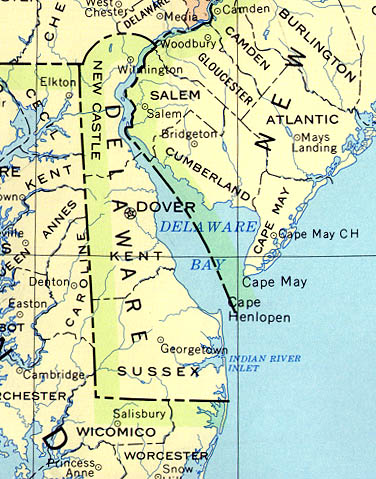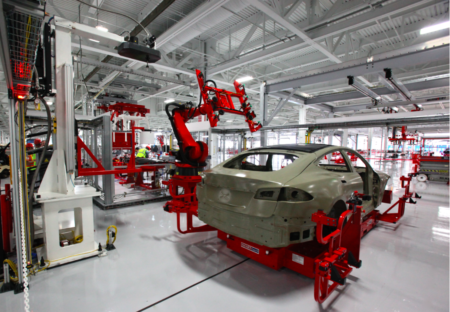By Peter Ward August 26, 2016
National Parks Service Faces $12bn Shortfall

The Organ, at Arches National Park, Utah. ©Sanjay Acharya, Creative Commons Attribution-Share Alike 3.0
As America’s National Parks Service celebrated 100 years this week, news surfaced that the system faces a maintenance shortfall of $12 billion that presents a huge challenge as it heads into its next century.
A data visualization published Wednesday by The Washington Post highlights exactly which national parks face the biggest budget shortfalls.
California’s state parks are suffering from an enormous $1.77 billion in maintenance shortfall and Yellowstone’s backlog is $603 million. Washington D.C.’s Mall and Memorial Parks are underfunded by $1.3 billion, according to the article, and parks in New York state are down $927.9 million.
The shortfalls make it almost impossible for the National Parks Service to carry out crucial maintenance, such as addressing crumbling roads, buildings and wastewater systems.
Despite the budget shortage, the park system is expected to notch record attendance this year, reaching over 330 million for the first time – a 23 million increase over last year. Great Smoky Mountain National Park in North Carolina and Tennessee is the top attraction, having received 10 million visitors in 2014, while the Grand Canyon National Park in Arizona drew 5 million visitors the same year.
The Parks Service is worried that the most stalwart visitors are disappearing, however, due to age and death. The service is looking to attract more young people and minorities, according to the Post.
Welfare Overhaul 20 Years On

Members of the U.S. Navy feeding hungry Americans at a soup kitchen in Red Bank, New Jersey. ©U.S. Navy photo, by Mass Communication Specialist 3rd Class Cristina Gabaldon
Some 20 years have passed since the Clinton administration overhauled welfare legislation in the U.S. – and this week NPR considered the overhaul’s legacy.
The changes were intended to move poor families off of welfare and into the workforce. The bill promised job training and support like help with child care. The program worked for millions of families, but not for all, according to NPR.
Many of the most disadvantaged families and individuals are worse off than they were before, in part because there is now a five-year lifetime limit on welfare benefits. In some states this time limit is shorter. For example, this year Arizona cut the limit to one year.
The idea that was supposed to motivate people to find work, has instead left some without any safety net. “It turned out that not everybody could get full-time, full-year work,” Kathy Edin, poverty expert at Johns Hopkins University and co-author of $2.00 a Day: Living on Almost Nothing in America, told NPR.
Data collected by NPR shows that the number of families living in poverty in America has increased from just over 6 million in 1996 to just over 7 million in 2014. Meanwhile, the number of families receiving welfare benefits dropped from over 4 million in 1996 to 1.6 million in 2014.
Delaware Protects Corporate Secrecy

Delaware. ©Public Domain
Why is Delaware still a haven for corporate secrecy? A Reuters special report published on Wednesday examines how the state has managed to subdue any attempts to pursue stronger legislation for corporate disclosure in the U.S.
While the vast majority of Delaware-registered companies are legitimate enterprises, the registration process in the state, which asks few questions of businesses, has allowed some notorious criminals to hide their money in shell companies.
There are numerous stories of criminals using Delaware to hide money. Lobbyist Jack Abramoff laundered the money he gained by defrauding clients through a Delaware shell company run by a lifeguard. Mexico cartel boss Joaquin “El Chapo” Guzman allegedly used a Delaware-based tequila business to launder drug money. And Zambia strongman Frederick Chiluba took millions from state coffers and put it into shell companies in Delaware.
In 2009, a global coalition launched a campaign against money laundering and tax evasion, and the U.S., while championing the cause abroad, pursued the issue at home as well. But Delaware’s state secretary Jeffrey Bullock had other ideas. At the time Delaware was heading towards an $800 million budget deficit, and its second biggest source of income was fees from company registrations and other corporate services.
A proposed law in 2009 would have required states to track the true owners of companies, which could have a serious effect on one of Delaware’s biggest cash cows. The law has still not been passed, thanks in part to Bullock, who has drummed up support from other states, tapped political connections and hired a Washington lobbying firm to help counter the proposal.
The bill has received fresh support this month, but its chances for getting voted into law remain unclear. “We’re viewed as hypocrites,” said Carl Levin, the now-retired Michigan senator who sponsored the legislation. “We go after tax havens and people who launder money … but then we become a haven.”
Tesla’s New Battery

Robotic manufacturing of the Model S at a Tesla factory in Fremont, California. (Wikimedia commons)
This week Tesla Motors unveiled a new battery pack for the higher end versions of its Model S and X cars that will extend the range and improve acceleration. Elon Musk, the chief executive of Tesla, has described the new battery as a “profound milestone.”
According to some, the new battery shows how far ahead of its competitors Tesla is, when it comes to battery technology. Batteries are a crucial component for the electric car industry as they determine how far a car can run without being charged.
Musk says the new battery extends the range of the Model S well beyond 300 miles and in cold weather a driver could travel from San Francisco to Los Angeles without recharging.
Tesla has been under investigation from U.S. safety regulators after a fatal crash in Florida earlier this year, in which the driver was using the car’s driver assistance system, known as “Autopilot.”
The Week’s Top Headlines
Uber Loses at Least $1.2 Billion in First Half of 2016 – Eric Newcomer, Bloomberg News
U.S. warns EU: Don’t hit Apple with a massive tax bill – Jethro Mullen, CNN Money
Business Sentiment Falls in Germany, France – Nina Adam, The Wall Street Journal
Self-driving taxi trial kicks off in Singapore – Andreas Illmer, BBC
EpiPen CEO hiked prices on two dozen products and got a 671% pay raise – Jana Kasperkevic, Amanda Holpuch, The Guardian
Volkswagen reaches deal in principle to compensate U.S. dealers – David Shepardson, Reuters
Pfizer to Buy Medivation for $14 Billion – Jonathan D. Rockoff, The Wall Street Journal
Hollywood’s financial glass ceiling: Jennifer Lawrence tops highest-paid actresses list — but she still makes less than male A-listers – Nico Lang, Salon
Tesla Unveils the World’s Fastest Production Car: 0 to 60 in 2.5 Seconds – Tom Randall, Bloomberg News
Ex-Comverse CEO pleads guilty to fraud, a decade after fleeing US – Reuters
This entry was posted on Friday, August 26th, 2016 at 3:49 pm. It is filed under Week in Review. You can follow any responses to this entry through the RSS 2.0 feed.
Comments are closed.
